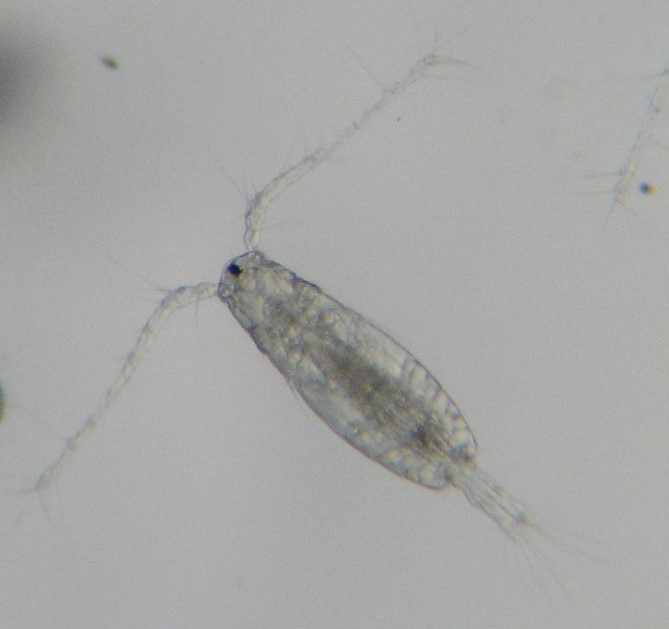
We are investigating how hypoxia and water temperature in Chesapeake Bay impact the availability of mesozooplankton, a primary food source to upper trophic levels. Our goal is to improve the ability of models to predict how hypoxia and temperature will affect management-relevant fisheries and ecosystems.
Why We Care
Coastal hypoxia (low dissolved oxygen) is a rapidly expanding global issue with a wide range of ecosystem consequences. One of the main concerns is how hypoxia impacts fisheries given that most hold some combination of economical, historical, societal, and ecological importance. Hypoxia is known to directly impact fisheries species by reducing their ability to reproduce and recruit, shifting their migration patterns, and causing habitat squeeze. However, a major research gap is how indirect effects of hypoxia impact fisheries. Mesozooplankton, especially copepods, serve as a key regulator in the transfer of production between primary producers (phytoplankton) and higher trophic level consumers (e.g., fishes). If hypoxia disrupts the amount of carbon being incorporated into copepod production, upper trophic levels are more likely to experience food limitation.
What We Are Doing
This project is focused on Chesapeake Bay, North America’s largest estuary. Chesapeake Bay suffers from seasonal hypoxia in summer driven by density stratification, relatively long residence times, and high heterotrophic bacterial activity that promotes oxygen depletion in deep waters.
We will investigate how hypoxia impacts the availability of mesozooplankton productivity to other parts of ecosystems. Our goal is to improve the understanding of and ability to predict how hypoxia will affect management-relevant fisheries and ecosystems. For this project, we consider coastal hypoxia and its induced stress on mesozooplankton as an inherent combination of decreased dissolved oxygen concentration and increased temperature. We will conduct laboratory and field experiments to quantify how water oxygen concentration and temperature directly and indirectly affect copepod productivity, and the amount of primary production that is ultimately available to higher trophic levels.
Objectives:
-
- Assess how low oxygen concentrations and increased water temperatures, alone and together, impact copepod production through ingestion and egg production rates.
- Estimate how much carbon is being transferred through phytoplankton, microzooplankton, and copepods in Chesapeake Bay under different in situ oxygen concentrations and water temperatures.
- Provide relevant relationships and metrics of zooplankton production under varying hypoxic conditions to ecosystem, fisheries, and water quality modelers.
This project is part of the Coastal Hypoxia Research Program, and is led by Nicole Millette at the Virginia Institute of Marine Science in collaboration with James Pierson and Michael Roman at the Horn Point Laboratory, University of Maryland Center for Environmental Sciences. A science advisory team will ensure that the findings can be transitioned to a diversity of management relevant models.
